Emergency HVAC Tavistock
Top Emergency AC Repair in Tavistock
Receive 3 FREE After Hours HVAC quotes for your project today! Compare profiles, reviews, accreditations, portfolio, etc... and choose the best deal.

Air Temp Solutions - AC Repair, Heating Repair, Water Heater Repair Devon, PA
4.9122 reviews211 Lake Dr, Suite J, Newark, 19702, GBAir Temp Solutions is a trusted provider of HVAC and plumbing services in Newark, DE. With over 2,033+ Google Maps reviews and a 4.9 avg rating, we pride ourselves on our exceptional customer service and expertise. Our team of professionals is dedicated to providing top-notch solutions for all your heating, cooling, and plumbing needs. Whether you need emergency repairs, routine maintenance, or new installations, we've got you covered. Contact us today to schedule your service!
- Services
- Why Us?
- Accreditations
- Our Team
- Testimonials
- Gallery
Get Quote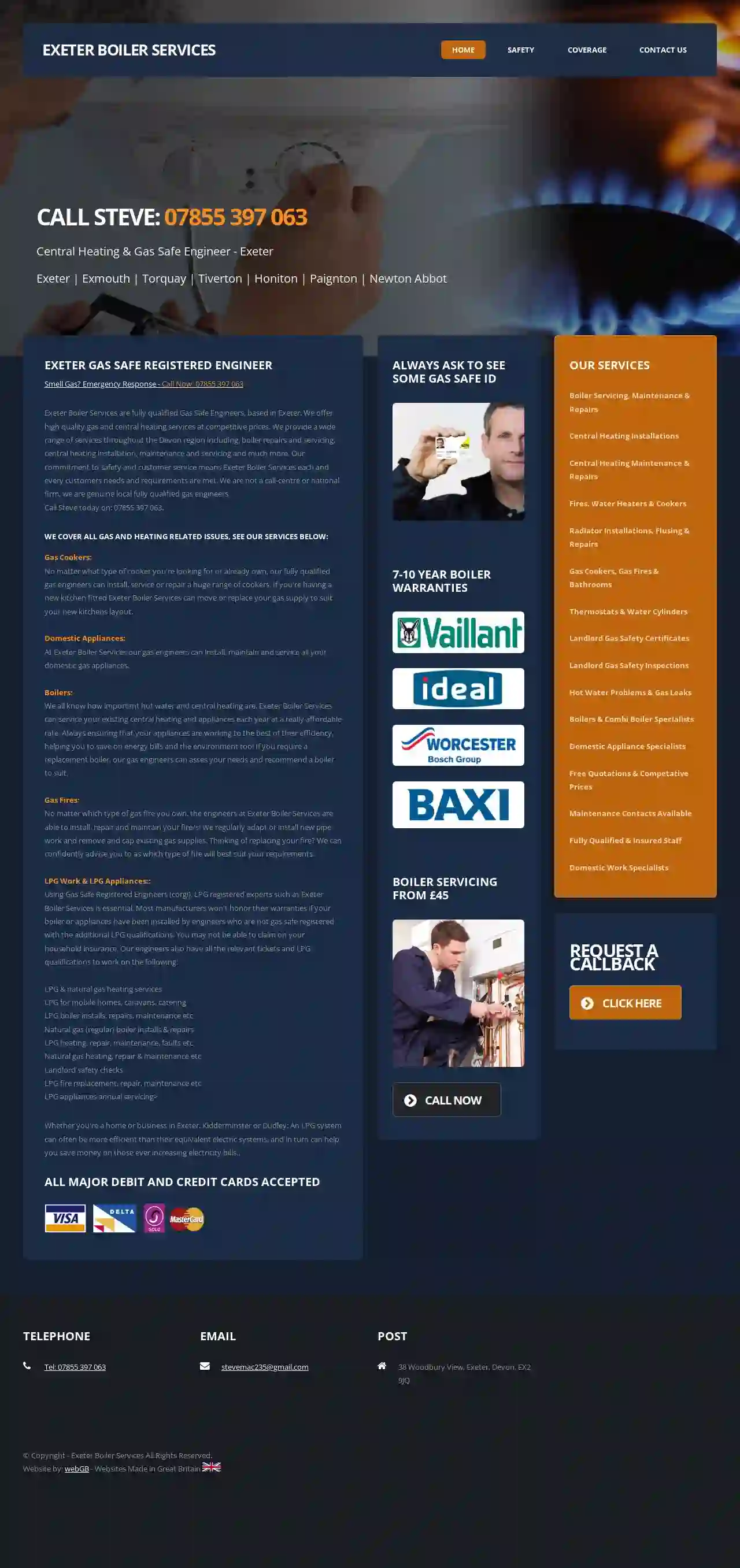
gas central heating services exeter devon
38 Woodbury View, Exeter, EX2 9JQ, GBExeter Boiler Services is a fully qualified Gas Safe registered business based in Exeter, Devon. We provide high quality gas and central heating services at competitive prices throughout the Devon region. Our services include boiler repairs and servicing, central heating installation, maintenance and servicing, gas cooker installation, servicing and repair, domestic appliance installation, maintenance and servicing, gas fire installation, repair and maintenance, and LPG work and appliance servicing. We are committed to safety and customer service, ensuring that each customer's needs are met. We are a local, independent business, not a call centre or national firm.
- Services
- Why Us?
- Accreditations
- Our Team
- Gallery
Get Quote
TF Solutions, Exeter
Exeter, GBTrusted Air Conditioning, Refrigeration and Heat Pump Wholesaler. Call: 03300415283. We are a leading supplier of air conditioning, refrigeration and heat pump products, with a wide range of products from top brands. Our commitment to you is to provide the best service and product range, with a reputation for reliable customer service. We strive to innovate in every part of our business to help all our customers, large and small, to grow with us.
- Services
- Why Us?
- Our Team
- Testimonials
- Gallery
Get Quote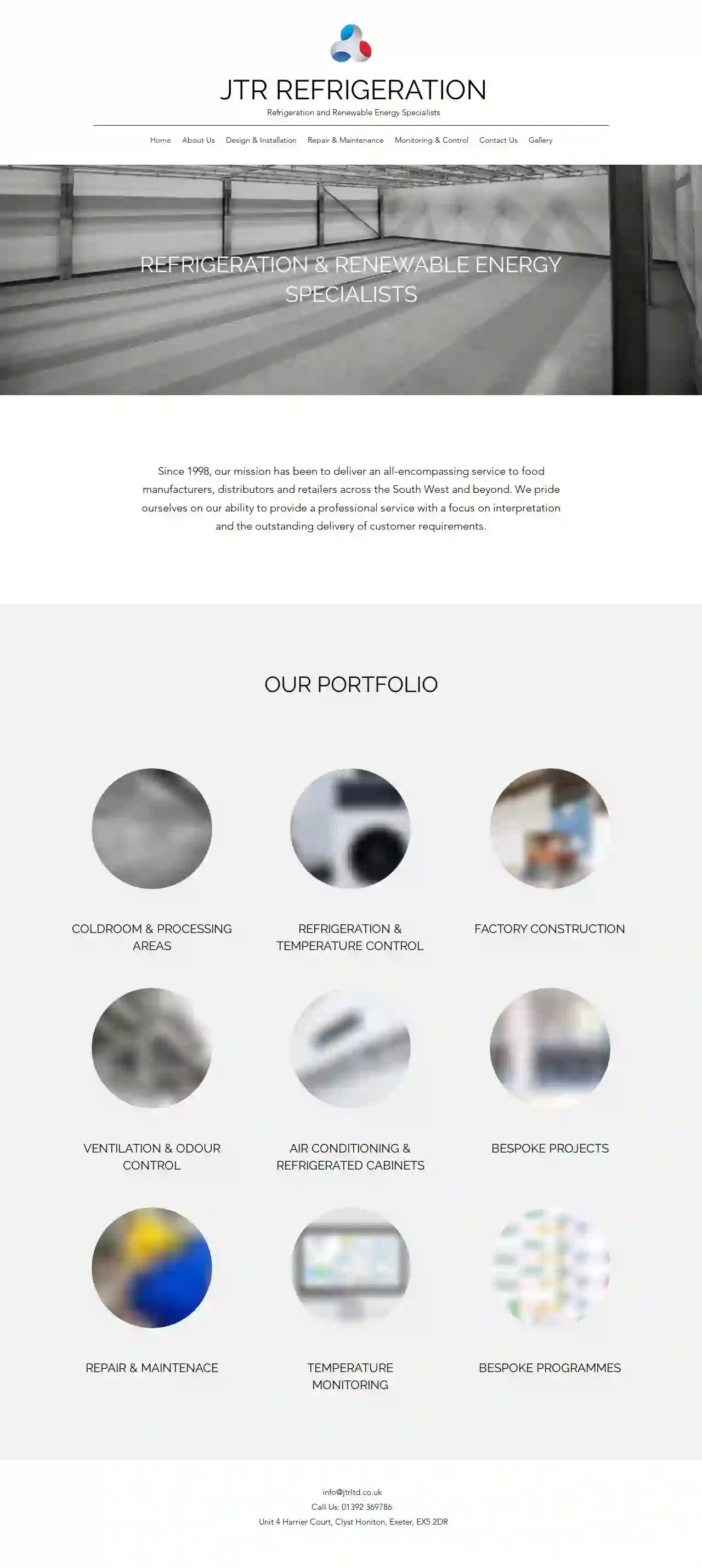
JTR Refrigeration
55 reviewsUnit 4 Harrier Court, Exeter, EX5 2DR, GBSince 1998, our mission has been to deliver an all-encompassing service to food manufacturers, distributors and retailers across the South West and beyond. We pride ourselves on our ability to provide a professional service with a focus on interpretation and the outstanding delivery of customer requirements.
- Services
- Why Us?
- Gallery
Get Quote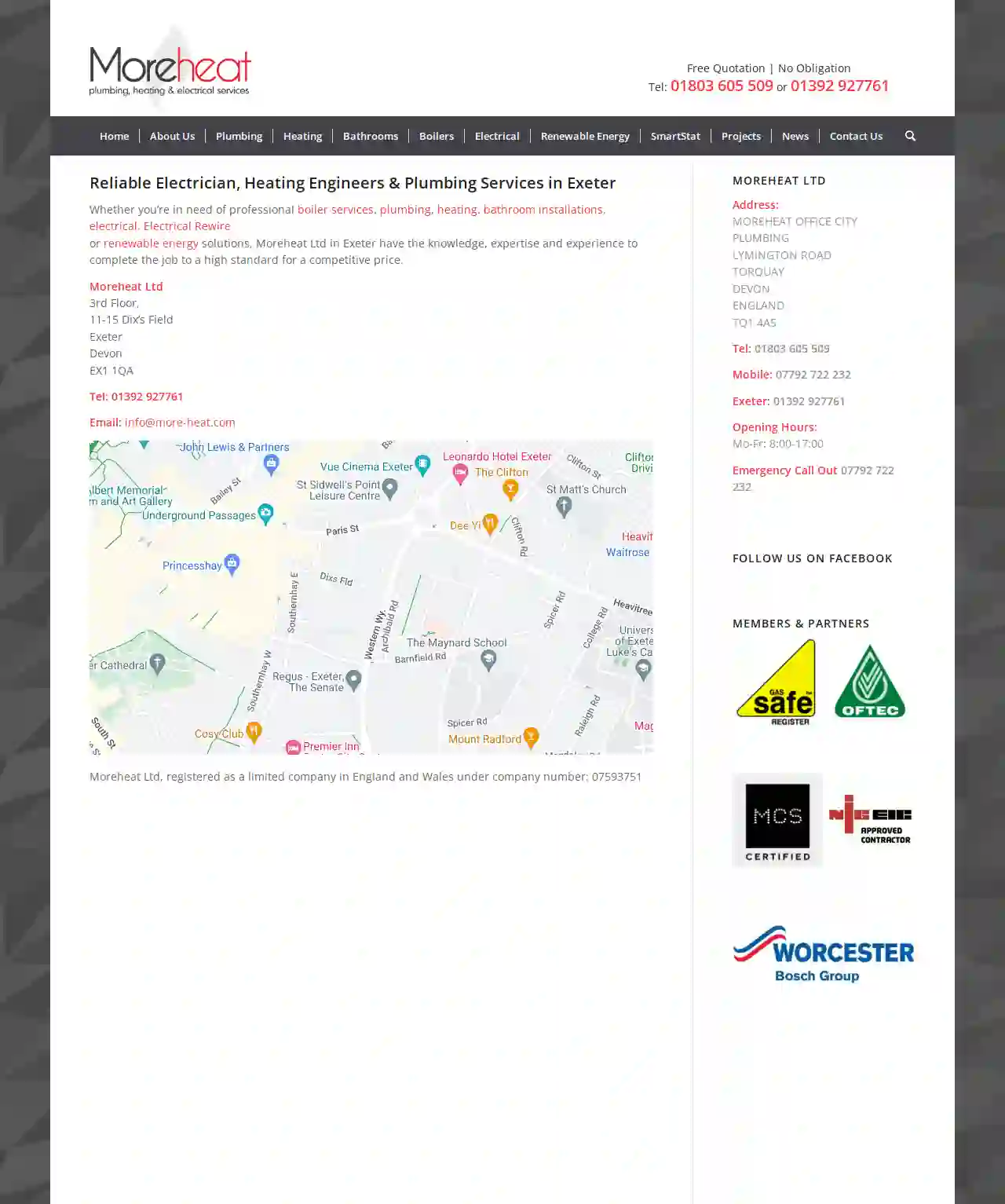
Moreheat Ltd
Exeter Devon, 3rd Floor, 11-15 Dix’s Field, Exeter, EX1 1QA, GBMoreheat Ltd is a reliable and trusted plumbing, heating, and electrical services provider serving Torquay, Torbay, and South Devon since 1998. Founded by Scott Rylance and John Cooper, who have over 30 years of combined experience in the industry, Moreheat has built a reputation for delivering high-quality workmanship and exceptional customer service. The company offers a wide range of services, including gas boiler installations, repairs, and upgrades, as well as plumbing, bathroom refurbishments, kitchen refurbishments, renewable energy solutions, and commercial heating boiler installations. Moreheat is committed to providing competitive pricing, a 10-year guarantee on new boiler installations, and a punctual and reliable workforce. They are Gas Safe registered, SafeContractor approved, and accredited by the Microgeneration Certification Scheme, ensuring customers receive safe and reliable service. In 2022, Moreheat expanded its services to include electrical work through Moreheat Electrical, led by long-standing subcontractor James Pointing. This new arm offers a comprehensive range of electrical services, including full rewires, electrical testing, Quantum heating installations, fault finding, and fuse board/consumer unit replacements. Whether you need routine boiler maintenance, emergency plumbing, or a complete bathroom renovation, Moreheat Ltd is your one-stop shop for all your plumbing, heating, and electrical needs.
- Services
- Why Us?
- Accreditations
- Our Team
- Gallery
Get Quote
Midwest Comfort Heating & Cooling LLC
4.9190 reviewsElk Grove, 56480, GBAIR CONDITIONING REPAIR, FURNACE REPLACEMENT, AND MAINTENANCE IN ELK GROVE, IL. Over 5 years Of Experience, detail oriented, Flat fees, no up-charges upon arrival, 100% Satisfaction Guaranteed. We offer timely and reliable AC repair services to ensure you stay comfortable during the hot summer months. Our team installs top-of-the-line air conditioning units to keep your home cool and comfortable. Our ductless mini split air conditioners are perfect for those seeking a cost-effective, energy-efficient cooling solution. Our mini AC split systems provide targeted cooling to specific areas of your home, making them perfect for smaller spaces. Our heat pump services provide heating and cooling solutions, perfect for year-round comfort. Our air handler installation and services work with your existing HVAC system to improve indoor air quality and keep your home comfortable.
- Services
- Why Us?
- Testimonials
- Gallery
Get Quote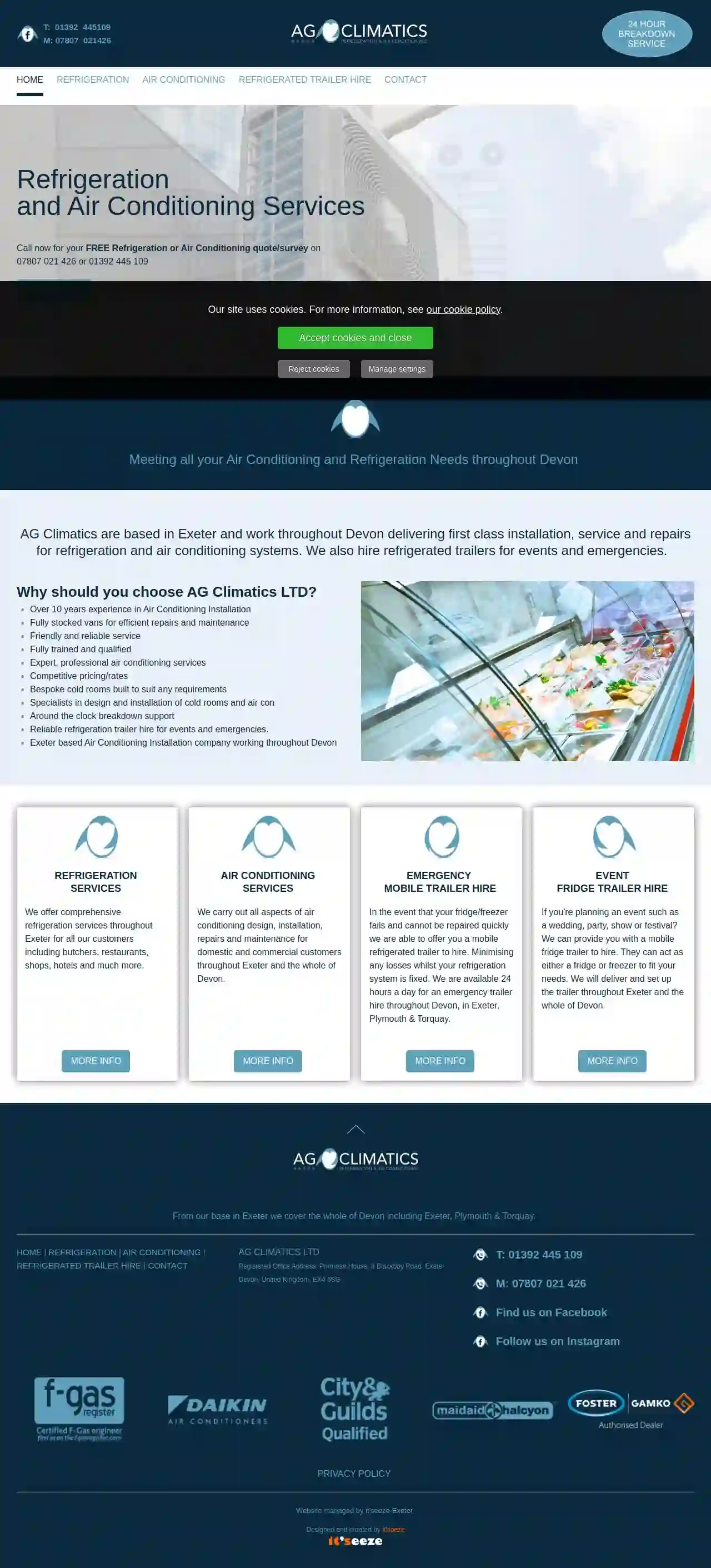
AG Climatics Ltd
510 reviewsPrimrose House, 6 Blackboy Road, Exeter, EX4 6SG, GBAG Climatics are based in Exeter and work throughout Devon delivering first class installation, service and repairs for refrigeration and air conditioning systems. We also hire refrigerated trailers for events and emergencies. Why should you choose AG Climatics LTD? Over 10 years experience in Air Conditioning Installation Fully stocked vans for efficient repairs and maintenance Friendly and reliable service Fully trained and qualified Expert, professional air conditioning services Competitive pricing/rates Bespoke cold rooms built to suit any requirements Specialists in design and installation of cold rooms and air con Around the clock breakdown support Reliable refrigeration trailer hire for events and emergencies. Exeter based Air Conditioning Installation company working throughout Devon
- Services
- Why Us?
- Gallery
Get Quote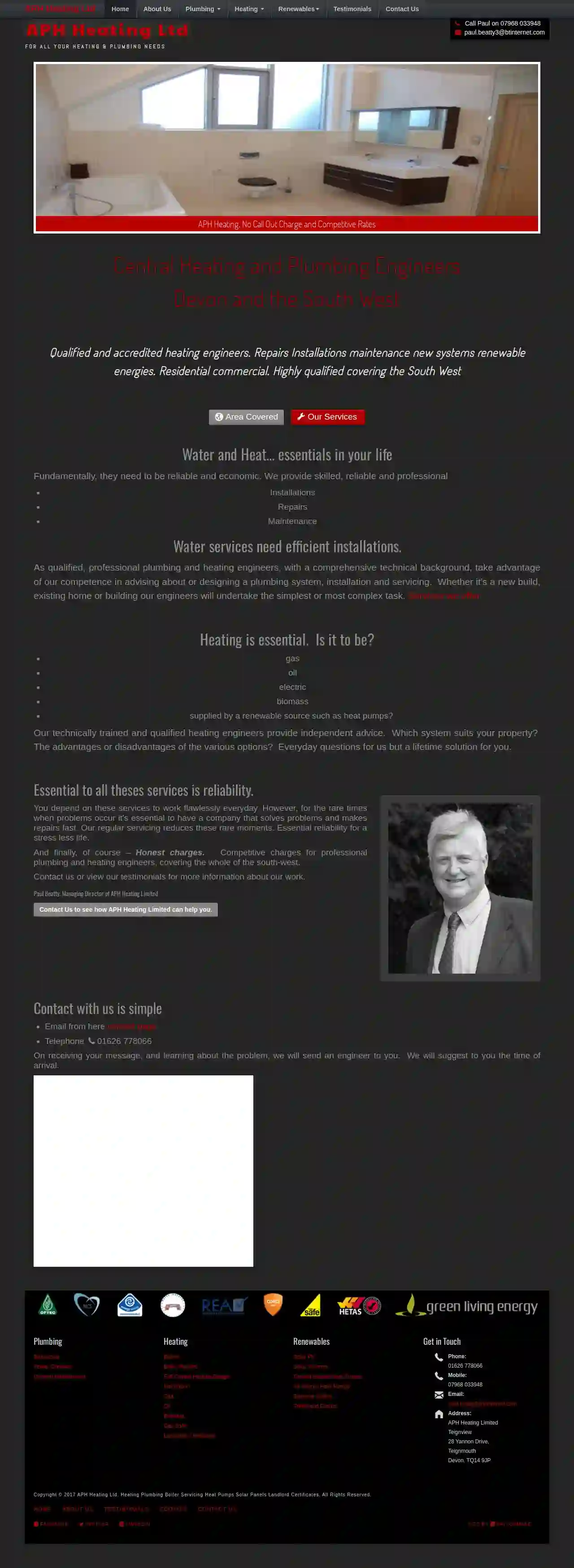
APH HEATING
3.911 reviewsTeignview, 28 Yannon Drive, Teignmouth, TQ14 9JP, GBAPH Heating Ltd is a team of qualified and accredited heating engineers serving Devon and the South West. We provide a comprehensive range of services, including installations, repairs, and maintenance for all types of heating and plumbing systems. Our expertise covers gas, oil, electric, and biomass boilers, as well as renewable energy solutions such as heat pumps. We pride ourselves on our reliability, professionalism, and competitive pricing. At APH Heating, we understand that your heating and water systems are essential to your daily life. That's why we strive to provide efficient, reliable, and cost-effective solutions tailored to your individual needs. Whether you're looking for a new boiler installation, repairs to your existing system, or regular maintenance to keep things running smoothly, our team of experienced engineers is here to help. We are committed to providing honest and transparent pricing, and we will always discuss the options available to you in detail before commencing any work. Contact us today to learn more about how APH Heating can help you with all your heating and plumbing requirements. Paul Beatty, Managing Director of APH Heating Limited
- Services
- Why Us?
- Accreditations
- Our Team
- Testimonials
- Gallery
Get Quote
Kensa Contracting
Mount Wellington, Chacewater, Truro, TR4 8RJ, GBKensa Contracting delivers pioneering and high-quality MCS accredited ground source heat pump projects at scale. With unrivalled experience and expertise, and a UK-wide network of expert consultants and contractors, Kensa Contracting offers a complete turnkey delivery service. The company provides access to grants, subsidies, and funding for ground source heat pumps and Shared Ground Loop Arrays, including zero-cost infrastructure. Kensa Contracting is an expert in grants & subsidies and funding for ground source heat pumps and Shared Ground Loop Arrays, including zero-cost infrastructure.
- Services
- Why Us?
- Accreditations
- Our Team
- Testimonials
- Gallery
Get Quote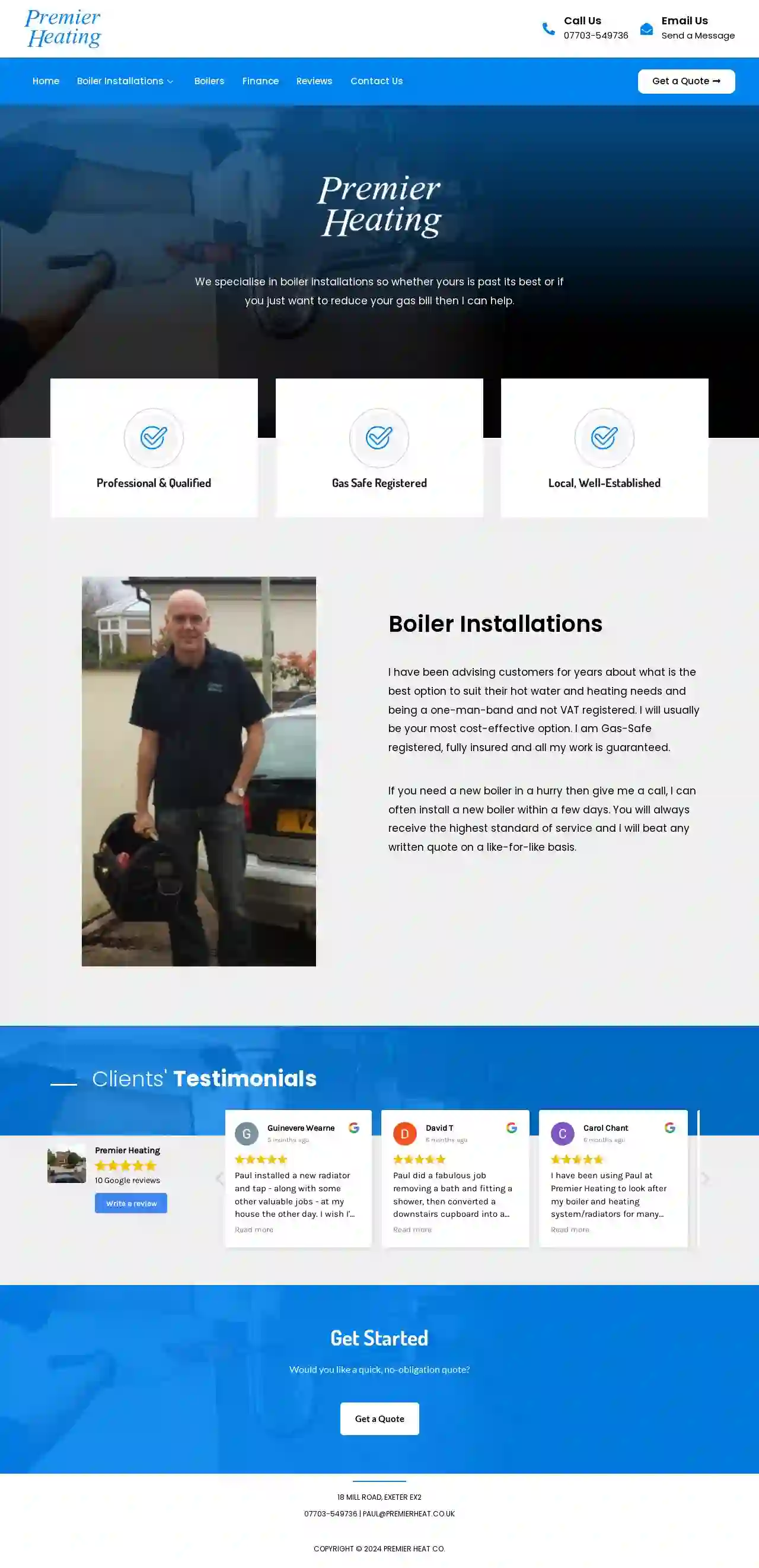
Premier Heating
59 reviewsExeter, 18 Mill Road, EX2, GBPremier Heating specialises in boiler installations, offering professional and qualified services. As a Gas Safe Registered and fully insured company, we guarantee all our work. With years of experience, we can help you choose the best option for your hot water and heating needs. We are a one-man-band, not VAT registered, making us a cost-effective option. We can install a new boiler within a few days and beat any written quote on a like-for-like basis. Our clients praise our prompt, courteous, and professional service, with many recommending us to friends and family.
- Services
- Why Us?
- Accreditations
- Our Team
- Testimonials
- Gallery
Get Quote
Over 12,692+ HVAC Companies onboarded
Our HVAC companies operate in Tavistock and beyond!
HVACCompaniesHub has curated and vetted Top HVAC Contractors in and around Tavistock. Find a trustworthy pro today.
Frequently Asked Questions About Emergency HVAC Services
- Safety First: If you suspect a gas leak or any electrical hazard, evacuate your home or building immediately and contact your utility company or emergency services.
- Turn Off Your System: Turn off your HVAC system at the thermostat to prevent further damage.
- Document the Issue: If possible, take photos or videos of the problem to show the technician.
- Gather Information: Have your HVAC system's model and serial number readily available, along with any warranty information.
- Clear Access: Ensure clear access to your HVAC system for the technician.
- Prepare Questions: Write down any questions you want to ask the technician.
What should I do while waiting for an emergency HVAC technician?
How often should I replace my AC unit?
What is a zoning system, and do I need one?
What is a smart thermostat, and how can it save me money?
What should I do while waiting for an emergency HVAC technician?
- Safety First: If you suspect a gas leak or any electrical hazard, evacuate your home or building immediately and contact your utility company or emergency services.
- Turn Off Your System: Turn off your HVAC system at the thermostat to prevent further damage.
- Document the Issue: If possible, take photos or videos of the problem to show the technician.
- Gather Information: Have your HVAC system's model and serial number readily available, along with any warranty information.
- Clear Access: Ensure clear access to your HVAC system for the technician.
- Prepare Questions: Write down any questions you want to ask the technician.